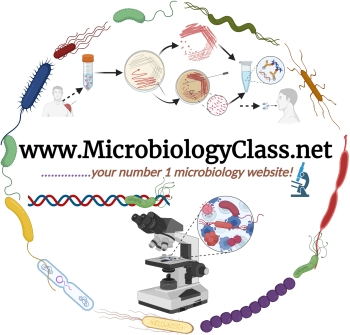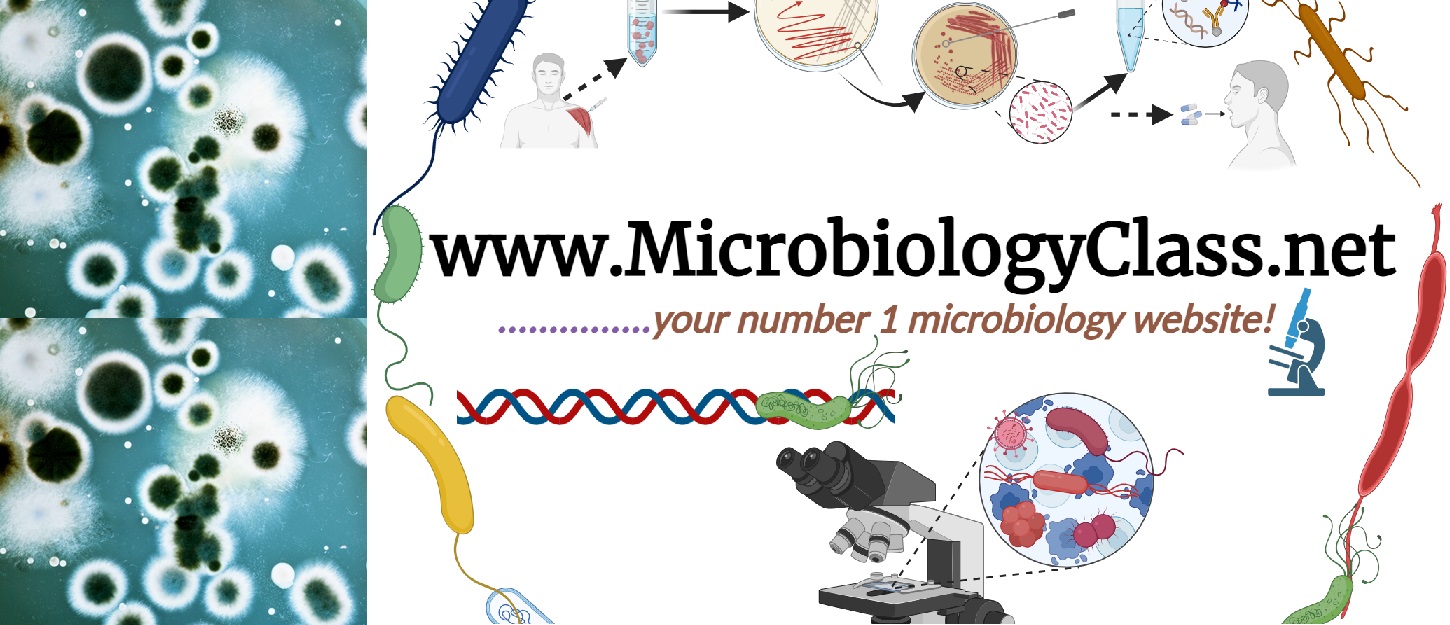The field of Microbiology has tremendous possibilities and a very bright future, and intending or prospective students who are seeking or pursuing their career as prospective microbiologist has golden opportunities that await them upon graduation due to their invaluable relevance in virtually all works of life. There are many areas of specialization in microbiology as a graduate in this discipline owing that microbiology is both a basic and applied biological science. The scope of microbiology is enormous due to its critical relevance to many fields in the biological and medical sciences such as: human medicine, veterinary medicine, pharmacy, nursing, medical laboratory, nanotechnology/nanomedicine, agriculture, biology, biotechnology, pharmaceutical industry, food, and water industry and so on.
According to the words of Albert Einstein “Imagination or Thinking is more important and powerful than Knowledge”. Microbiology is a field which has brought so many imaginations to reality especially in the development of devices (the microscope in particular) and other technologies that enable man to explore the unseen forms of life (i.e. the microbial world), and exploit same for his own benefit. Today, microbiologists have discovered new drugs, new foods, and even new diagnostic test kits to contain the excesses of infectious diseases, and many more discoveries are currently underway – which have all impacted humanity in countless positive ways.
All this have been made possible due to the imaginative thought of microbiologists (which may be at par with other disciplines) to explore extreme areas of his environment and the intricate workings of microorganisms which are all geared towards making the society a better place. A renowned microbiologist, Louis Pasteur once said that: “In the field of observation, CHANCE favours only the prepared minds”. Microbiologists are a class of astute scientists who harness their knowledge of the microbial world in imaginative or inventive ways so as to develop novel products and services that will improve humanity.
Microbiology as a specialized area of the biological sciences concerns itself with the study of microorganisms i.e. living organisms too small to be seen by the naked eye except with the aid of a microscope. Microorganisms are very essential components of the ecosystem (i.e. the flora and fauna of the environment) and they affect life in countless number of ways both advantageously and disadvantageously. However, the benefits of microbes to mankind, animals and the environment far outweigh any detrimental effects that they are presumed to cause. Only a small proportion of microorganisms cause infectious diseases in humans compared to the many microscopic and macroscopic organisms which have innumerable benefits to mankind.
The field of microbiology is a collection of several distinctive techniques (inclusive of culturing of microbes either in vitro or in vivo, aseptic technique, pure culture technique, antimicrobial susceptibility studies, microscopic examination, and sterilization amongst others); and as microbiologists, our most important task is to isolate microorganisms in their pure forms from a wild populations of cells or mixed culture (inclusive of environmental and hospital samples) in order to study them appropriately.
In the beginning, much importance was placed on pathogenic microorganisms which cause a variety of diseases in man, animals and plants, and also cause the spoilage of food, wine and other beverages as well. However, innumerable beneficial microorganisms have now been recognized as being essential to the activities of man and that of his environment as well. In the soil and aquatic habitat, microorganisms help in transforming nutrients such as nitrogen, carbon, iron, and carbon et cetera to useful by-products that are beneficial to man, plants and other animals.
Microorganisms have also contributed in countless ways in the production of food for man and his animals; drugs to fight infectious diseases; vaccines to prevent infections/diseases; bread, wine and beverages as food; and other industrial and pharmaceutical products that are of immense relevance to man.
In recent times, microbiologists have updated and given impetus to the study of biological systems through the development of recombinant DNA technology, monoclonal antibody, and biotechnological applications amongst others that have benefitted humanity in many ways especially as it relates to the combating of infectious diseases and developing novel products in medicine, pharmaceuticals and the food industry. Some of the areas of specialization for microbiologists are: teaching and research, bacteriology, virology, mycology, industrial microbiology, parasitology, algology, biotechnology, cell biology, environmental science, genetics, immunology, and scientific writing amongst others.
The field of microbiology is very fulfilling and rewarding, and graduates of microbiologists are of high demand in many industries and organizations. Countless number of options abounds for microbiology graduates through which they can harness their knowledge of the microbial world into more challenging, fulfilling, innovative and rewarding profession. Apart from its central role in advancing human health and welfare especially as it has to do with the detection and identification of disease-causing microorganisms; the field of microbiology have impacted and transformed other sectors of the economy in diverse unimaginable ways, and her scientific and technological advancements are the yardstick and foundation that are still fuelling research and development (R&D) in the biological and biomedical sciences around the world.
REFERENCES
Atlas R.M (2010). Handbook of Microbiological Media. Fourth edition. American Society of Microbiology Press, USA.
Balows A, Hausler W, Herrmann K.L, Isenberg H.D and Shadomy H.J (1991). Manual of clinical microbiology. 5th ed. American Society of Microbiology Press, USA.
Beers M.H., Porter R.S., Jones T.V., Kaplan J.L and Berkwits M (2006). The Merck Manual of Diagnosis and Therapy. Eighteenth edition. Merck & Co., Inc, USA.
Black, J.G. (2008). Microbiology: Principles and Explorations (7th ed.). Hoboken, NJ: J. Wiley & Sons.
Brooks G.F., Butel J.S and Morse S.A (2004). Medical Microbiology, 23rd edition. McGraw Hill Publishers. USA. Pp. 248-260.
Dictionary of Microbiology and Molecular Biology, 3rd Edition. Paul Singleton and Diana Sainsbury. 2006, John Wiley & Sons Ltd. Canada.
Dubey, R. C. and Maheshwari, D. K. (2004). Practical Microbiology. S.Chand and Company LTD, New Delhi, India.
Garcia L.S (2010). Clinical Microbiology Procedures Handbook. Third edition. American Society of Microbiology Press, USA.
Garcia L.S (2014). Clinical Laboratory Management. First edition. American Society of Microbiology Press, USA.
Madigan M.T., Martinko J.M., Dunlap P.V and Clark D.P (2009). Brock Biology of Microorganisms, 12th edition. Pearson Benjamin Cummings Inc, USA.
Mahon C. R, Lehman D.C and Manuselis G (2011). Textbook of Diagnostic Microbiology. Fourth edition. Saunders Publishers, USA.
Prescott L.M., Harley J.P and Klein D.A (2005). Microbiology. 6th ed. McGraw Hill Publishers, USA. Pp. 296-299.
Ryan K, Ray C.G, Ahmed N, Drew W.L and Plorde J (2010). Sherris Medical Microbiology. Fifth edition. McGraw-Hill Publishers, USA.
Ryan K, Ray C.G, Ahmed N, Drew W.L and Plorde J (2010). Sherris Medical Microbiology. Fifth edition. McGraw-Hill Publishers, USA.
Singleton P and Sainsbury D (1995). Dictionary of microbiology and molecular biology, 3rd ed. New York: John Wiley and Sons.
Talaro, Kathleen P (2005). Foundations in Microbiology. 5th edition. McGraw-Hill Companies Inc., New York, USA.
Salyers A.A and Whitt D.D (2001). Microbiology: diversity, disease, and the environment. Fitzgerald Science Press Inc. Maryland, USA.
Discover more from Microbiology Class
Subscribe to get the latest posts sent to your email.





